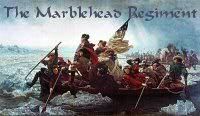"Was Jesus truly a man of history?"
The most recent post was very interesting, so I thought I would bring it to your attention.
It is titled "Jesus, A Man of History?" and can be found here.
While I have 1000% Faith that Jesus Christ, Son of God, Man and Divine, walked the earth, lived among us, and died on the Cross for us, there are many people who choose to believe none of this was true (which is a very sad thing).
They demand proof, proof, proof (Never mind the Bible with the Gospels and Letters.), yet take many other things on little or no evidence. Such hypocrisy.
"Jesus, A Man of History?" addresses this very issue. I suggest you have a look.
Here is an excerpt to whet your appetite:
Was Jesus truly a man of history? I have recently been dialoging with others on the net in regards to this subject and thought it important enough to post about here. Is there reliable proof that substantiates the “historicity” of Christ as an acutal historical figure?Do read the rest here.
I submit the following, but would be interested in reading what some of you out there think, believe, or even ponder in regards to this subject…feel free to comment.
Obviously the Bible, namely the New Testament, gives us our greatest attestation to the historicity of Christ. Some would argue however, that the Bible is not reliable. I would say that if the Bible is not reliable; than neither is any other substantial work of antiquity known today.
The historical reliability of the bible should be tested by the same criteria that all historical documents are tested under:
1- Bibliographical Test (An examination of the textual transmission by which documents reach us.)
2- Internal Test (Literary critics still follow Aristotle’s dictum that “…the benefit of the doubt is to be given to the document itself, not arrogated by the critic to himself.”)
3- External Evidence Test (Do other historical materials confirm or deny the internal testimony provided by the documents themselves? I.e. confirmation by archaeology.)
Truly, if one discards the Bible as being unreliable, a non-historical work, then he must discard almost all other literature of antiquity by using the same standards. Consider for instance that there are now more than 5,300 known Greek manuscripts of the New Testament. Add over 10,000 Latin Vulgate and at least 9,300 other early versions (MSS) and we have more than 24,000 manuscript copies of portions of the New Testament in existence today.
No other document of antiquity even begins to approach such numbers and attestation. In comparison, the “Iliad” by Homer is ranked in 2nd place with only 643 manuscripts that still survive. The first complete preserved text of Homer dates from the 13th century!
No reputable scholar would doubt the historicity, authenticity, or relevance of Homer’s works, yet they would be apt to state that the Bible is unreliable based off of personal opinion and/or preconceived biases instead of sound reasoning and documented evidences to the contrary.
 I Remember
I Remember
















































<< Home